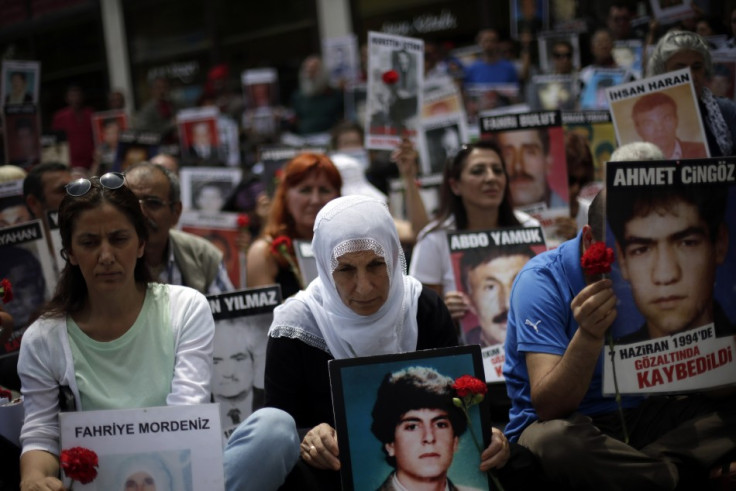Turkish Protests Enhance Kurdish Peace Process in Common Demand for Democracy [BLOG]

It took little more than two weeks, a dozen bulldozers and 130,000 tear gas canisters to smash Turkish Prime Minister Recep Tayyip Erdogan's hard-earned international reputation.
The Gezi Park demonstrations, which mushroomed into nationwide protests against Erdogan's authoritarian style, have also cast a long shadow over the relationship between Turkey and the EU, with membership talks postponed until October this year.
However, the Turkish-Kurdish peace process seems to has survived intact despite the demonstrations - and the Turkish police's harsh reaction to them.
"Despite the obstacles I am determined to advance this process and I believe that we will be successful," said jailed Kurdish leader Abdullah Ocalan.
Unknowingly and, perhaps, unwillingly, the ongoing civil turmoil has indeed promoted the peace process by enhancing popular demand for a new democratic constitution - one of the Kurds' first requests.
For the first time in the history of the Republic, Turkish nationalists found themselves peacefully protesting alongside Kurds in the name of democracy and civil rights.
The calm behind the storm
Erdogan's harsh rhetoric towards protesters has inflamed Kurdish spirits with blunt and provocative statements.
"How could you accept seeing the pictures of [father of modern Turkey Mustafa Kemal] Ataturk and a terrorist leader [Ocalan] sitting one next to each other?'", the prime minister asked the huge crowd gathered in Kazlicesme on 16 June.
However, the Kurdish minority reacted calmly to provocations to avoid altering the fragile balance of the peace process.
"How can we continue the negotiations with a prime minister that keeps calling us terrorists?" asked Selahattin Demirtas, co-chair of the pro-Kurdish Peace and Democracy Party (Bdp)
While clashes between police and protesters have continued in the streets of Istanbul, the withdrawal of Kurdistan Workers Party or PKK militants from Turkish soil, which began last May, has slowly continued alongside the mountains of Iraq.
"At the moment we have moved into the second stage", said Ocalan, referring to the legislative phase in which, according to the negotiations, Kurdish demands ought to be included in the constitution.
While there is broad popular consent to revise the charter in order to strengthen civil rights and democracy, the prime minister may have dropped his ambitious dream of adopting a presidential system before 2014's elections. The support of Kurdish deputies is crucial to revise the charter but, after the disastrous events of Taksim Square, it may no longer be certain.
"No peace without democracy"
It is unlikely that Erdogan will be able to put the Gezi Park crisis behind him without scars.
"There will not be peace without democracy", warned Bdp member Gültan Kışanak.
After the rampant abuses of power, the restriction of civil liberties and press freedom during the Gezi Park protests, the Kurdish minority is determined - now more than ever - not to step back on its constitutional demands.
"Taksim protests are a call for democracy", stated Kurdish politician Baskin Oran. "It's the same call Kurds have been making for years". Thus he believes it is vital to "act now and do it quickly", as the whole country's voice will not be left unheard.
The day after the protests, a Bdp delegation submitted a 25-item proposal package, ranging from the reduction of the election threshold to the changes to be made to the Terrorism Law and the Turkish Penal Code.
Both protesters and Kurdish negotiators have patiently sowed the seeds for the country's democratisation. It is now up to the Government to follow the uneasy road towards peace and not to lose what has been achieved up to now.
Emanuela Pergolizzi is an expert in Turkish affairs. She has published an essay entitled "AKP foreign policy: a 'neo' or 'post' Ottoman recap?". From 2013 she covered the peace process between the Turkish government and Kurdish jailed leader Abdullah Ocalan. She writes for Osservatorio Iraq andResetdoc.
© Copyright IBTimes 2025. All rights reserved.





















